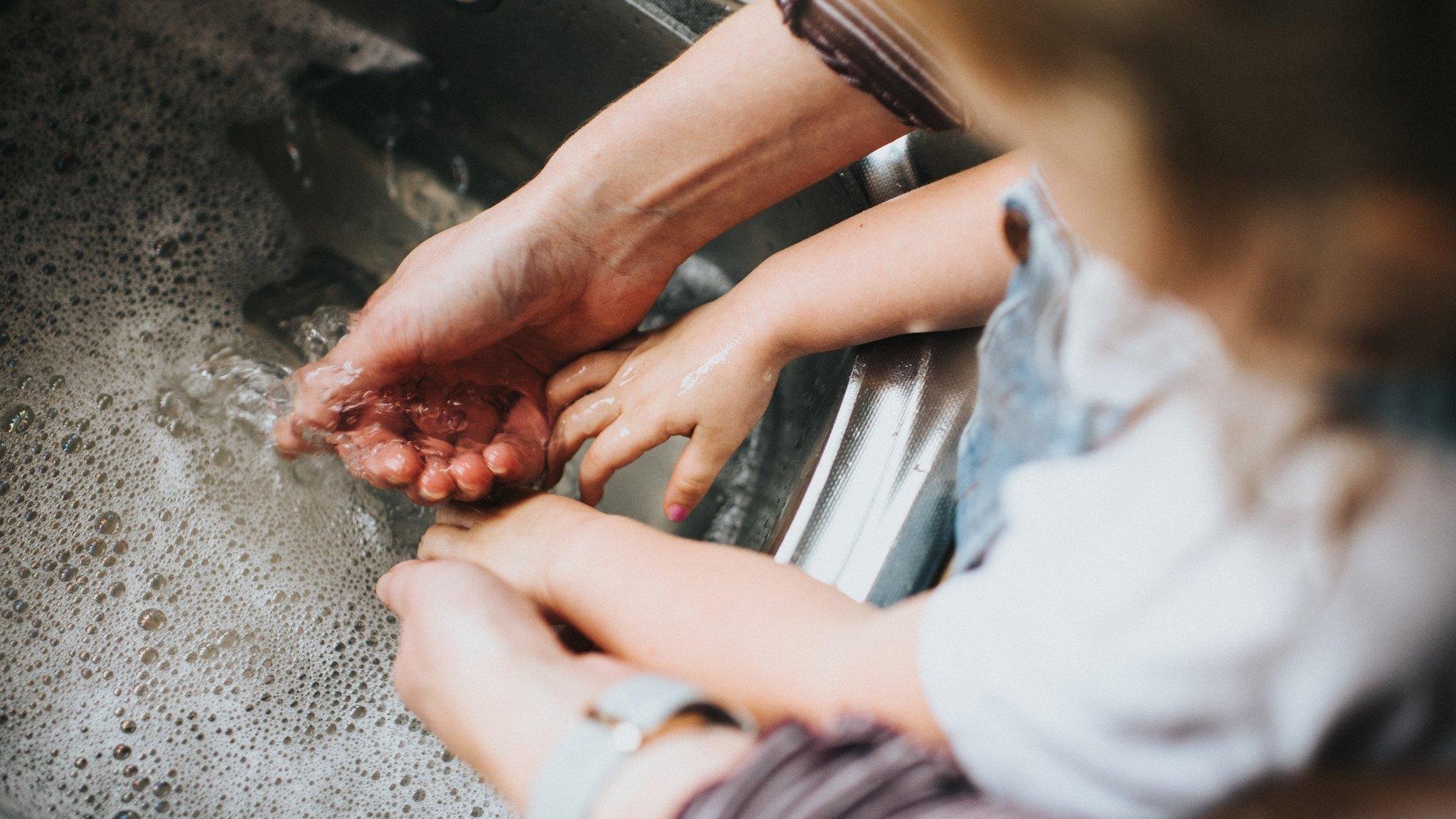Cost of living: Hygiene poverty is a sign of crisis, says charity
- Published
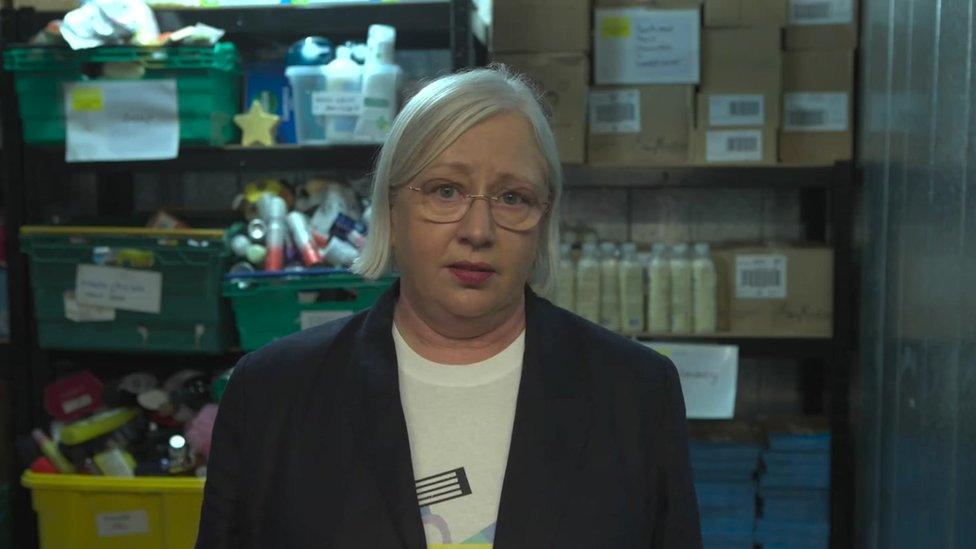
Lorraine Howard, trustee at The Hygiene Bank, says families feel shame when they cannot afford to buy toiletries
Struggling to buy toiletries is the "first sign a family is falling into crisis", a charity trustee has warned.
The Hygiene Bank, which runs projects across the UK, helps people who cannot afford basic essential toiletries.
A new survey carried out by the charity found that more than three million people in the UK are thought to be experiencing hygiene poverty.
Volunteers at one of the charity's schemes, in Bromley, south-east London, said a school washed pupils' clothes.
Lorraine Howard, ones of the trustees at The Hygiene Bank, said families felt shame and isolation when they were unable to afford to buy toiletries.
"It's often the first sign that a family is falling into crisis when they can't afford these basic essentials," she said.
"We take feeling clean and having clean clothes for granted, but you can imagine the impact on some of us.
"The feelings of shame, the stigma, the self-isolation, the social exclusion, and impact on mental health."
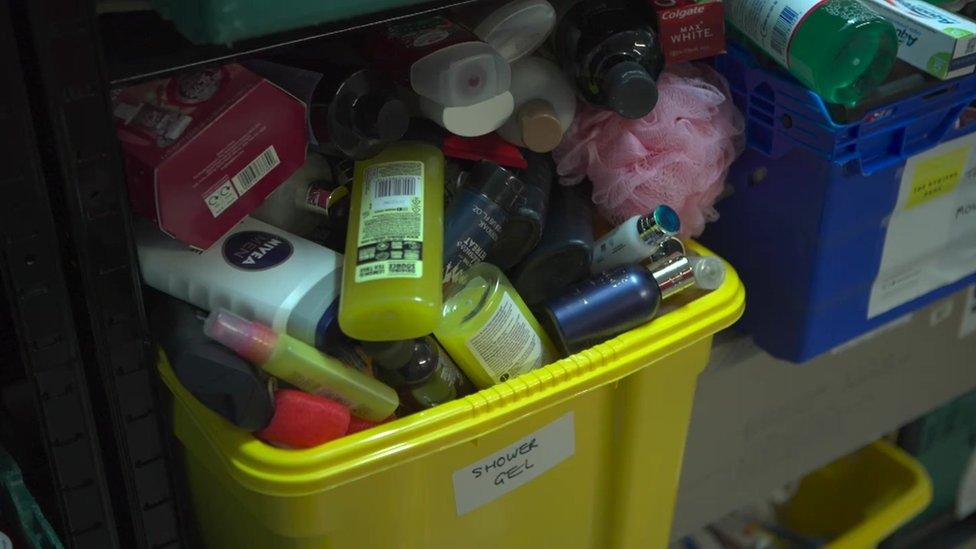
Last month, the charity distributed over 20,000kg of products across the UK
The charity receives donations from the community, which are sorted by volunteers.
They are then sent to local organisations, services, charities and projects to give to the families and individuals they support.
In London, the charity runs projects in areas including Bermondsey, Lewisham, Peckham, Waltham Forest, Winchmore Hill, Forest Hill and Sydenham.
The charity works with charitable organisations including food banks, mother and baby banks, homeless shelters and refuges, and supplies them with products that do not often get donated.
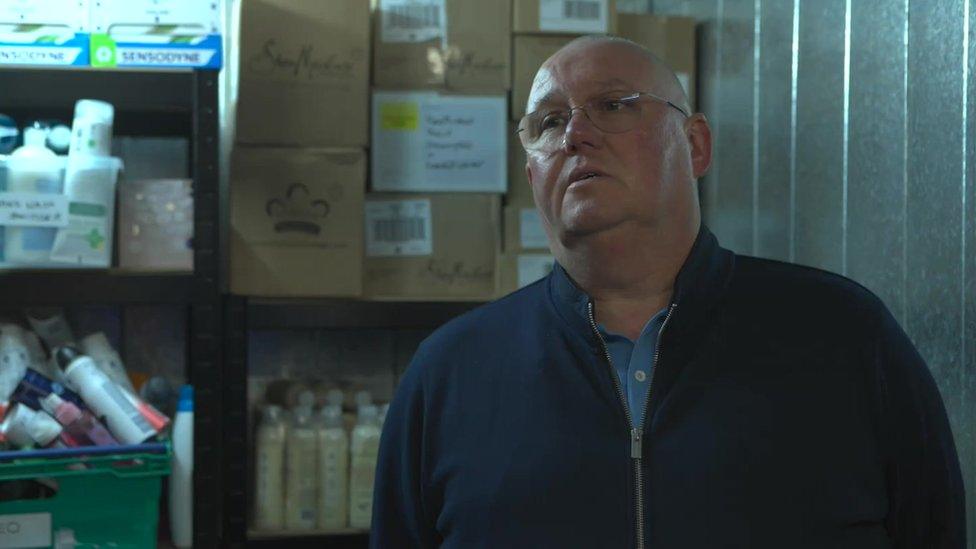
Volunteer Eamonn Howard said a school was washing pupils clothes for them
Eamonn Howard, who volunteers at the Orpington site in Bromley, said: "One of the local schools that we drop stuff off to has got its own washing machine - they actually wash children's uniform.
"Or they'll wash their PE kits so they're clean for the next day - which is quite shocking when you first hear it.
"The gratitude, you can't imagine it. Especially with the cleaning products."
A survey published by The Hygiene Bank found that 24% of people thought to be experiencing hygiene poverty were regularly struggling to wash their clothes and 29% had to prioritise food instead.
Last month, the charity distributed over 20,000kg of products across the UK.
You can watch Politics London on BBC One on Sunday at 10:00 GMT or on BBC iPlayer after transmission.

Listen to the best of BBC Radio London on Sounds and follow BBC London on Facebook, external, X, external and Instagram, external. Send your story ideas to hello.bbclondon@bbc.co.uk, external
- Published21 June 2023

- Published11 May 2023
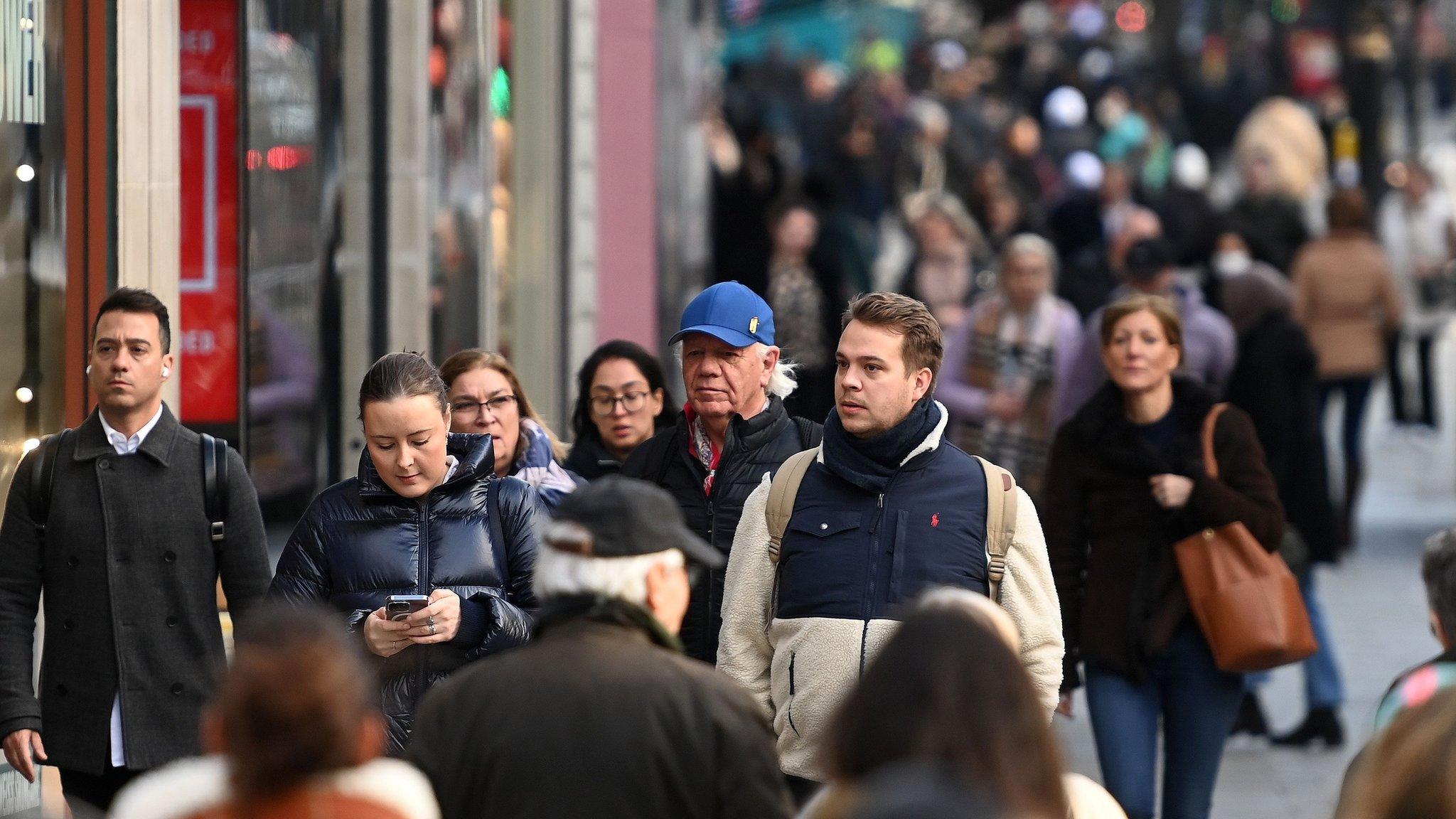
- Published27 October 2022
